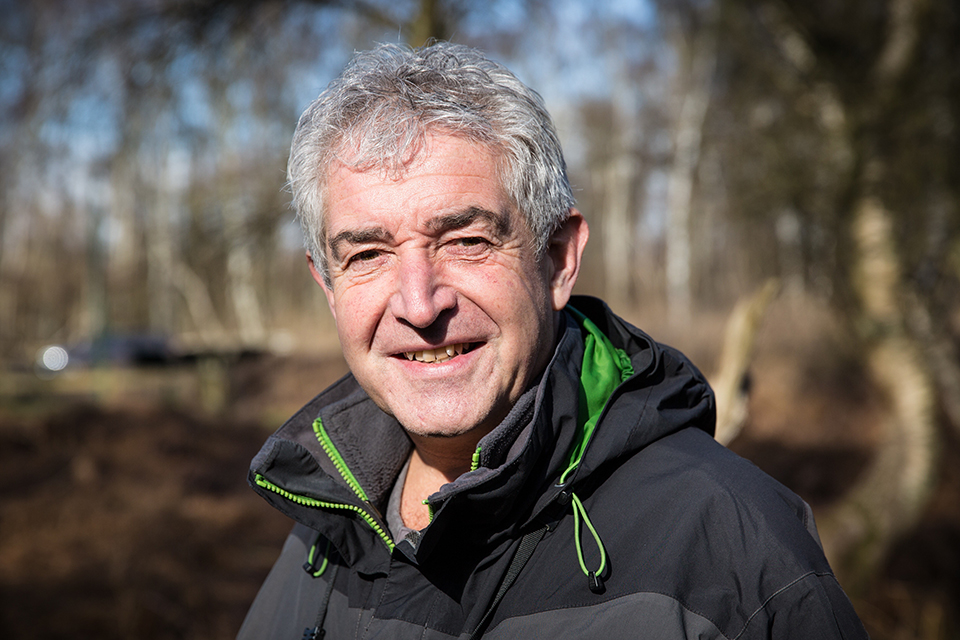Vision for nature recovery launched
Tony Juniper marks the launch of the Environment Improvement Plan

Thank you SoS for inviting me to speak at what is a defining moment for Nature recovery in this country. As your speech emphasised so clearly, Nature is not a nice to have but vital for our survival, and which is why this Environmental Improvement Plan published today is so important, and so welcome.
We now all know that we are facing into a series of environmental challenges that are very serious, pressing and which are connected to one another. At the global level the heating of our planet and the depletion of Nature are twin evils which drive each other on and place our economies and societies in peril. Their effects are very much felt in England where, in Nature terms, we’ve become one of the poorest countries on Earth.
Countries are beginning to recognise that if we are to secure our future we need to tackle these huge challenges, and do it in an integrated and joined up manner. After the UK government helped to forge global common cause at COP 15, the new Environmental Improvement Plan is a very visible demonstration of this country’s commitment to taking the urgent practical steps needed to reach the targets agreed in Montreal, and indeed those set out domestically while that summit was in progress and as required by the 2021 Environment Act.
The result we have before us today is an ambitious and integrated plan, setting out a package that is broad and geared towards hitting targets. What is required now is a concerted effort across government and society to translate its intent into action.
This can be done, so long as priority is attached to it and we remain focussed on joined-up delivery based on partnerships. Success will not only bring benefits for our depleted natural environment, but also for jobs, food and water security, public health and investment.
The economic benefits arising from Nature recovery are increasingly well understood. Pollination by bees and other insects are worth annually nearly £700 million, sustaining a farming industry worth over £120 billion. In England’s peatlands some 580 million tonnes of carbon are locked away in the ground and out of the atmosphere, at the same time filtering high-quality water into rivers that is worth up to £888 million annually.
A high-quality natural environment attracts visitors and business opportunities. The Jurassic Coast World Heritage Site has brought millions of pounds into the local economy and supports up to 2000 jobs, while the England Coast Path generates spending of more than £18 per person per day and health savings of £62 per trip.
Nature recovery thus makes sense at many levels and must begin with halting its long-term decline by 2030. This will not be simple and will take significant new partnerships and integration of effort across the “Four Fs” of farming, forestry, flooding and freshwater.
Each of these elements has its own distinct pressures and goals, but with a holistic approach they can create a real momentum towards meeting the environmental targets and the basis for doing that is in the plan being launched today.
Action to deliver this five-year plan is already well under way and Natural England is proud to be at the forefront of that. In recent years we have been repurposed and revitalised and we are making great strides in working with a wide range of partners to bring Nature recovery to life.
One example is the way we’ve sought to expand the role of National Nature Reserves, designating new sites and joining up neighbouring ones to enable Nature restoration at significant scale.
Over the last three years we have increased the total area of NNRs by 13,000 hectares – equivalent to almost 15% of the total area declared in the previous 67 years since their inception in 1952. We will continue with this programme of expanding NNR coverage through five new significant designations per year during the course of the EIP.
NNRs are among the battery packs of core protected areas that will power the Nature Recovery Network that we and our partners are creating across the country. Containing the finest examples of wildlife, habitat and geology they will also help to power wider Nature Recovery Projects that are now springing into life.
A great example of this is the Somerset Wetlands, where we declared a super NNR last year, which incorporated six existing NNRs within new lands where Nature recovery can take place and which is also at the heart of a new Nature Recovery Project that is ten times the size and which was announced a week later.
We already have six of these large scale Nature Recovery Projects in place and a further 19 are in the pipeline, many of them, like Purple Horizons in the West Midlands, taking Nature recovery into the heart of towns and cities, where many people lack the health and wellbeing benefits that come with connection to the natural world. This and other projects like it will help give effect to the EIP goal of ensuring that every person is no more than 15 mins walk from green space.
On this theme, today also sees Natural England launch a new Green Infrastructure Framework that gives local authority planners and developers the tools and advice they need to ensure that thriving Nature is firmly embedded in their plans for their communities, giving people more opportunity to enjoy the wonders of the natural world.
Today marks a significant new opportunity to change Nature’s fortunes for the better in this country. The EIP charts an ambitious path, and if we can build the partnerships needed to succeed we could during the years ahead begin to see the transformation that we know we must make, marking the moment when we turn from charting Nature’s decline and instead chart its recovery.